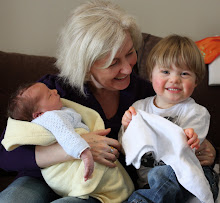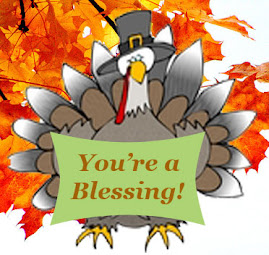Ireland. Land of Saints and Scholars.
I am not much into Saints. Scholars are more my thing. Actually more novelists and playwrights.
If I was playing the Word Association Game and asked to give the first name that came into my head for “Irish playwrights”, my answer would be Samuel Beckett and Oscar Wilde. In particular I would think of a powerful interpretation of Beckett’s En Attendant Godot (which Beckett himself translated, giving us “Waiting for Godot”) in a 100 seater theatre in the Latin Quarter in Paris (gosh, that was about 35 years ago! Before I moved to Ireland) that had me in a daze for ages afterwards. The first time I saw the Importance of Being Ernest – it was on TV, a BBC production if I remember right – introduced me to Wilde’s humour just as I had acquired enough English to understand all the words, sentences, repartees, double meanings. I was hooked.
Continuing this game, say “Irish novelist” and I answer James Joyce. I have been brave enough to make my way through most of Ulysses… not all, mind you, but I will get there, in time. Only a few months back I re(re-re)read Dubliners. And once again I was struck by how many people I currently know who could so easily have been the models of some the characters in these short stories. To me, the mark of a true artist is the ability to reveal the timeless core of the human psyche.
Strangely, both Joyce and Beckett left Ireland to set up life in France. Strangely both Wilde and Beckett died in France.
This brings me to my other side: French writers. There the choice is harder for me, because, instead of chancing on works and appreciating them for what they bring up in me, I was steeped into French literature from an early age. Hard to distinguish the tree from the forest. Yet if the game went along the lines of “favourite novel” I would shout Les Liaisons Dangereuses by Choderlos de Laclos. A master piece of construction, a web spun through letters going back and forth between the various characters, each presenting a very different interpretation of the events. And a master piece of exploration, dissecting and exposing the very best and the very worst of human motives. Still so real today!
Now say to me “French Playwright” and I answer: Molière. Of course! The one and only! Again what has always appealed to me is the seemingly simplistic universality of his characters. Some feat when we consider that all of his work is very firmly set in a specific period of time, the 17th century France of the Sun King Louis XIV.
I might be accused of playing it safe, coming up with such predictable giants. Sometimes the “giantness” is indeed justified. And I would not play the game with more recent or current writers. So many to choose from, the choice would be so influenced by my most recent reading!
I am not much into Saints. Scholars are more my thing. Actually more novelists and playwrights.
If I was playing the Word Association Game and asked to give the first name that came into my head for “Irish playwrights”, my answer would be Samuel Beckett and Oscar Wilde. In particular I would think of a powerful interpretation of Beckett’s En Attendant Godot (which Beckett himself translated, giving us “Waiting for Godot”) in a 100 seater theatre in the Latin Quarter in Paris (gosh, that was about 35 years ago! Before I moved to Ireland) that had me in a daze for ages afterwards. The first time I saw the Importance of Being Ernest – it was on TV, a BBC production if I remember right – introduced me to Wilde’s humour just as I had acquired enough English to understand all the words, sentences, repartees, double meanings. I was hooked.
Continuing this game, say “Irish novelist” and I answer James Joyce. I have been brave enough to make my way through most of Ulysses… not all, mind you, but I will get there, in time. Only a few months back I re(re-re)read Dubliners. And once again I was struck by how many people I currently know who could so easily have been the models of some the characters in these short stories. To me, the mark of a true artist is the ability to reveal the timeless core of the human psyche.
Strangely, both Joyce and Beckett left Ireland to set up life in France. Strangely both Wilde and Beckett died in France.
This brings me to my other side: French writers. There the choice is harder for me, because, instead of chancing on works and appreciating them for what they bring up in me, I was steeped into French literature from an early age. Hard to distinguish the tree from the forest. Yet if the game went along the lines of “favourite novel” I would shout Les Liaisons Dangereuses by Choderlos de Laclos. A master piece of construction, a web spun through letters going back and forth between the various characters, each presenting a very different interpretation of the events. And a master piece of exploration, dissecting and exposing the very best and the very worst of human motives. Still so real today!
Now say to me “French Playwright” and I answer: Molière. Of course! The one and only! Again what has always appealed to me is the seemingly simplistic universality of his characters. Some feat when we consider that all of his work is very firmly set in a specific period of time, the 17th century France of the Sun King Louis XIV.
I might be accused of playing it safe, coming up with such predictable giants. Sometimes the “giantness” is indeed justified. And I would not play the game with more recent or current writers. So many to choose from, the choice would be so influenced by my most recent reading!
Because I love reading. I love books. Always have, since I first learnt to read. And I have passed this on to my children. As tiny babies, a few months old, I would place books on their laps and read stories to them. Anything with colourful pictures and a bit of a plot, irrespective of the book not being for “that” age group. I have read to Cathal too, from early on. I find this is a special time for the two of us, quietly sitting side by side, close. I read and he listens, most of the time. He turns the pages, back and forth. It’s nice.
And then he takes matters into his own hands and does a critical review of today’s serving:
Genetically, Cathal is 75% Irish, 25% French (if there is such a thing). As you can see, I strongly encourage the scholarly side of his heritage! In particular I am keeping safe in my home a book I have salvaged from his mother and uncle’s childhood, a beautifully (and funnily) illustrated copy of Joyce’s letter to his grandson Stephen, The Cat and the Devil… can’t wait to read this one to him soon. The language is simply too truculent!
BBBBook! Indeed!









5 comments:
Great talking Cathal! Luke was mesmorised watching this :)
Great little clip, what a trooper! I hope that "Aliens in underpants save the world" will stand the test of literary time too, classic plot and character development with complex underlying themes... :o)
quel fervent lecteur! comment il a grandi et changé depuis juin! bye bye cathal et bisous de dom and co
I think he is asking for Heat Magazine. You can't force it Nan, give the boy what he wants. xx
Ahh...that's fab nan P! He loves his books...I think at the end he just wanted his nan to read with him!
I've been dying to share this with u Nan... Snuggles' best friend's Sister is DS she's about 4 and her speech is really improving. She has a French Daddy and says the odd word in French to him...but knows to speak in English to Mum!! Maybe in time, Cathal will have a few French words for his Nan! xx J
Post a Comment